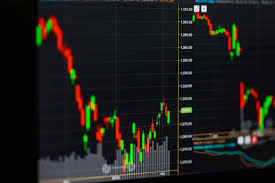Effective Forex Trading Strategies for Small Investors 1639501204

Forex Trading Strategies for Small Investors
In the dynamic world of Forex trading, small investors often face unique challenges that require specific strategies tailored to their needs. Unlike large institutional investors, small traders must navigate the market with limited capital yet aim for maximized returns. Utilizing the right Forex trading strategies can make a remarkable difference in these scenarios. Whether you are just entering the Forex market or looking to refine your approach, it’s crucial to focus on effective and manageable strategies that align with your goals. forex trading strategies for small accounts Trading Brokers in India can provide essential tools and resources to enhance your trading experience.
Understanding Forex Trading Basics
Before diving into specific strategies, it is essential to understand the basics of Forex trading. The Forex market operates 24 hours a day, five days a week, allowing traders to buy and sell currency pairs. Currency trading is conducted based on the relative value of one currency to another. Understanding pips, margin, leverage, and currency pairs is crucial for any trader.
1. Start with a Solid Trading Plan
One of the first steps to successful Forex trading is developing a solid trading plan. A trading plan outlines your goals, risk tolerance, and the strategies you will employ. A well-structured plan includes:
- Trading Goals: Define what you want to accomplish – is it long-term wealth building, or short-term gains?
- Risk Management: Decide how much of your capital you are willing to risk on each trade.
- Trading Strategy: Based on your trading style, choose between day trading, swing trading, scalping, etc.
Having a trading plan helps in executing trades systematically, minimizing emotional decision-making.
2. Utilize Technical Analysis
Technical analysis is a vital part of Forex trading strategies. Small investors can benefit from using charts and historical price data to make informed decisions. Key components of technical analysis include:
- Indicators: Use indicators like Moving Averages, RSI, and MACD to identify trends and entry/exit points.
- Chart Patterns: Recognize patterns such as head and shoulders, flags, and triangles that indicate future price movements.
- Support and Resistance Levels: Identify key price levels where the market tends to reverse or consolidate.
By effectively analyzing the market through technical analysis, small investors can execute trades with greater confidence.
3. Implement Effective Risk Management
Risk management is particularly crucial for small investors since they often have limited capital. Here are some effective risk management strategies:
- Position Sizing: Determine the right size for each trade based on your risk tolerance. A common rule is not to risk more than 1-2% of your trading capital on a single trade.
- Stop-Loss Orders: Always use stop-loss orders to minimize potential losses. Determine your stop-loss level before entering a trade.
- Diversification: Avoid placing all your capital in one trade. Diversifying across different currency pairs can reduce risk.

Implementing these risk management techniques will help protect your trading capital and support long-term growth.
4. Keep a Trading Journal
Maintaining a trading journal is an excellent practice for small investors. Documenting your trades helps analyze your performance and refine strategies over time. Include details such as:
- Date and time of the trade
- Currency pair traded
- Entry and exit points
- Profit or Loss
- Overall performance review
Reviewing your trading journal at regular intervals can help identify patterns in your trading behavior, allowing for continuous improvement.
5. Stay Informed About Market Events
The Forex market is influenced by various factors, including economic indicators, geopolitical events, and central bank policies. For small investors, staying informed about market events is essential as they can significantly impact currency prices. Monitor:
- The economic calendar for scheduled economic releases, which can lead to market volatility.
- Central bank announcements and interest rate changes.
- Geopolitical developments that may affect market sentiment.
By understanding how these events influence the market, small investors can make better-informed trading decisions.
6. Use Demo Accounts to Practice
Before committing real money, small investors should consider using demo accounts to practice trading strategies. Most trading platforms offer demo accounts that allow you to trade with virtual money. This practice allows you to:
- Familiarize yourself with the trading platform.
- Test various trading strategies without financial risk.
- Build confidence in your trading decisions.
Once you feel comfortable with your trading approach in the demo environment, you can transition to live trading more effectively.
Conclusion
Forex trading presents both opportunities and challenges, especially for small investors. By implementing effective Forex trading strategies, such as creating a trading plan, utilizing technical analysis, managing risks, and staying informed, small investors can enhance their chances of success in the Forex market. Remember, consistent practice, learning, and adaptability are key to thriving in Forex trading. Start your journey today and explore the strategies that best fit your investing style.

Deixe uma resposta
Want to join the discussion?Feel free to contribute!